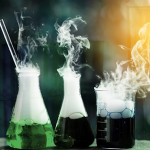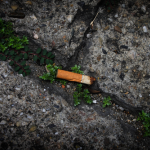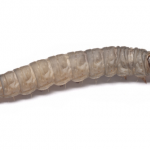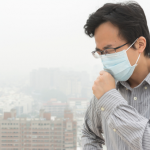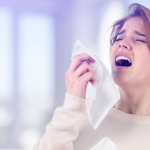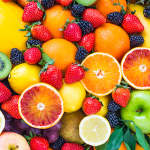There's the unsupported belief that organic farming is better for the environment. While there are many reasons this isn't true, German and Sweden researchers have just found another: While the carbon footprint associated with both conventional and organic diets is roughly equal, an organic diet requires 40% more land.
Chemicals & Chemistry
Several years ago, a survey of professional toxicologists revealed that 79% of them believed that the Environmental Working Group and two other organizations overstate the health risks of chemicals. That's why EWG is beloved by activists but detested by scientists.
A teenager's recent death from caffeine consumption inspired this article, mainly because people may not realize that caffeine, in large amounts, can be toxic. Another inspiration was to highlight some very cool, but little known, research that tests just how toxic caffeine is. Read this – and you'll never look at a spider web the same way again.
A paper claiming an environmental cause for two cancers that have been intensively studied over decades has serious flaws. That's because there's little-to-no evidence that environmental pollution plays a role.
If someone's going to commit mass murder of innocent civilians, it follows that he's going to lie about it. Which is exactly what Bashar al-Assad did when he denied Syria used chemical weapons in the April 4 attack. What revealed the lie? Chemistry.
Our oceans, rivers and landfills are getting clogged with plastic bags — especially the kind we get in grocery stores. It's a real problem, since they're not biodegradable. But now researchers have discovered that a caterpillar that lives in bee hives — the wax moth caterpillar — can actually eat the plastic and thrive!
As if coral reefs worldwide aren't in bad enough shape, the last thing we need is something that intentionally kills them. But "cyanide fishing" – an illegal method to stun and catch tropical fish for aquariums – persists, especially in Southeast Asia. However, using some analytical chemistry we're one step closer to stopping this practice.
Recent research has forged a new reason to take B vitamin supplements — protection from the deleterious cardiovascular effects of air pollution. But the data are far from conclusive and much more work will have to support these results before their utility is proven. In the meantime, don't hold your breath.
A history professor at the University of Michigan claimed that carbon dioxide is deadlier than Sarin gas. Although it seemed implausible to the Council's chief chemist, the prof's claim was even more false than we imagined. The things you learn.
It is not fake science, it is not science at all to claim pollution makes us feel as bad as the death of a spouse.
Media outlets like Newsweek thoughtlessly repeated the claim that air pollution will make someone just as unhappy as the death of a spouse, without doing any critical thinking. Luckily, you have us for that. Here we'll put that distorted comparison in proper context.
Spring is here. And with it comes pollen and mold spores, and close on their heels, hay fever. There are several means to treat this immune system dysfunction that can provide relief from the oft life-disrupting symptoms.
Spring is just around the corner, and with it comes another growing season. Eating a diet rich in fruits and vegetables can help lower calorie intake; reduce risks for heart disease, obesity and Type 2 diabetes; and protect against certain cancers.
With all these benefits, why do some consumers choose to avoid produce? Approximately three-quarters of people in the U.S. don’t eat enough fruits and vegetables, according to the 2015 Dietary Guidelines for Americans.

